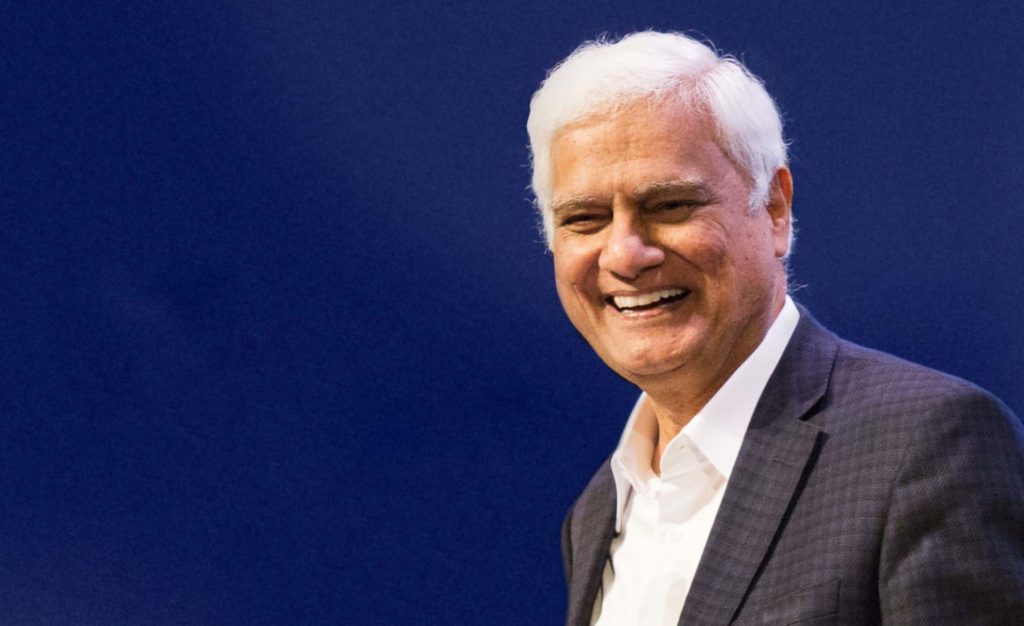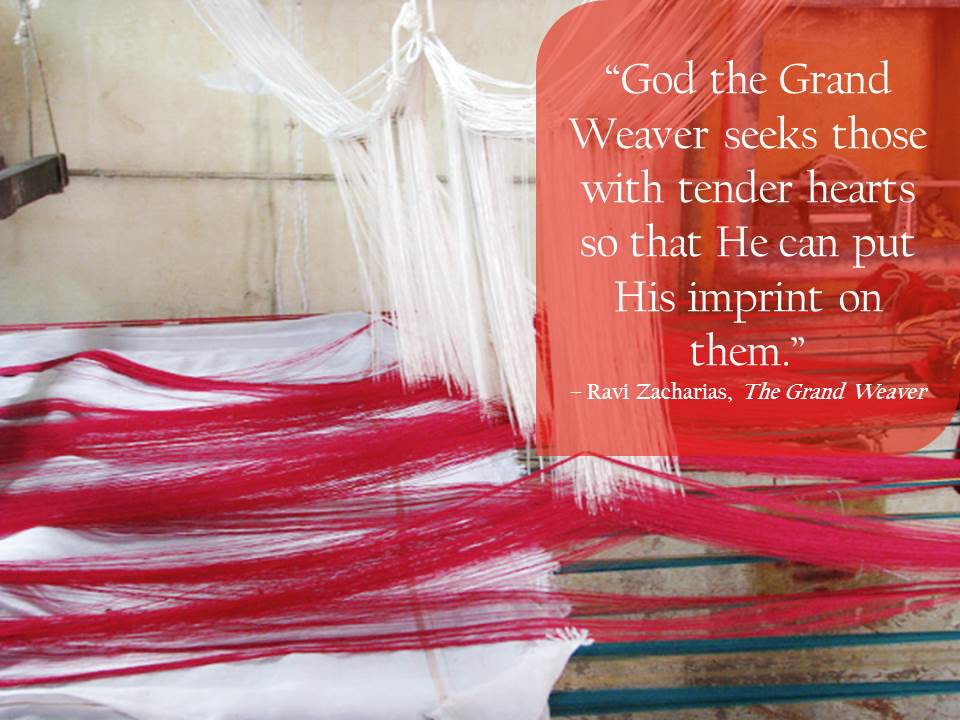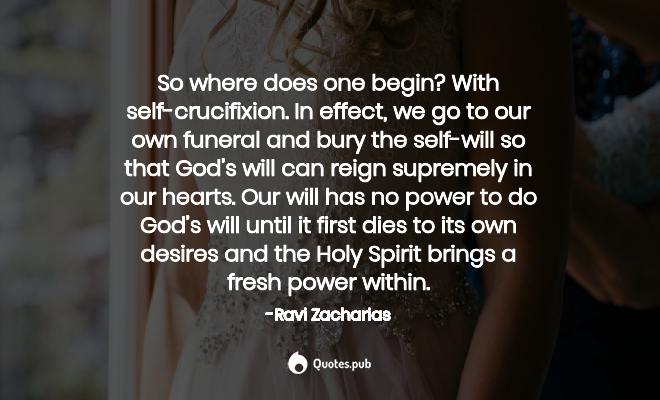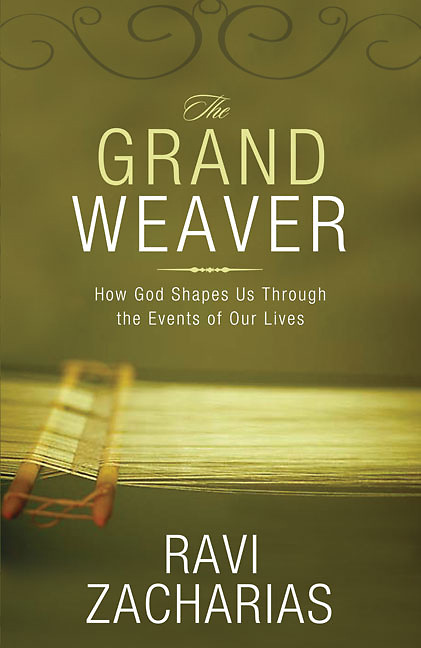The Grand Weaver is a powerful, yet short book by Ravi Zacharias that describes how the unseen hand of God is constantly working in our lives. Everything that happens in life is for a reason and sometimes we endure challenges and sufferings, but God is there with us. The book’s title paints a wonderful picture of a “weaver.” I read this book earlier this year, via Audible, which is great, because it is read by Ravi and I always love listening to his voice. Below is a summary of the book, as spoken by key passages I took directly from Ravi.
In Chapter 3, Ravi tells us that “God, in his extraordinary way can bring failure to you or cast you into prison in order to help you find your true calling. What is a calling? A calling is simply God’s shaping of your burden and beckoning you to your service to him in the place and pursuit of his choosing. Finding your home in your service to Christ is key to noticing the threads designed just for you.”
In Chapter 4, Ravi says that man fell away from our true purpose once we took the fruit of the tree in the garden of good and evil. This gave humanity the power to redefine everything. This has been a constant in human history – and it continues to be so for our age! “Morality says: it’s all about whether you think it’s right or not. The redeemed heart says: what would God have me do in this situation?” Ravi tells us that, “True fulfillment and the possibility of boundless enjoyment come when we do life God’s way. When we do it our way, we only enslave ourselves.”
Ravi points out that, “The moral law also serves as a profound reminder that In God there is no contradiction. The moral law stands as a consistent, contradiction-free expression of God’s character. If I violate this law, I bring contradiction into my own life and my life begins to fall apart. This is why a humble spirit honors God and recognizes how near and yet how far it is from God.”
Moving on to chapter 5, we are told by Ravi that, “One measures true spirituality by whether one listens to Jesus’ voice. Asking Jesus the questions while refusing to listen to his answers reveals the ultimate hypocrisy and prejudice.”
And, in chapter 6, Ravi tells us the part we must allow the Holy Spirit to play in our lives. “Only in and through the power of the Holy Spirit is the Christian walk even possible. Submitting to God’s will – so where does one begin? With self-crucifixion. In effect, we go to our own funeral and bury the self-will so that God’s will can reign supremely in our hearts.”
Sometimes we seek the material things in this world; but we are made for a higher purpose. “You ask for pleasure and you end up empty. You ask for purpose and you end up ravaged. In his goodness, God will never betray us into a false hope. He promises to give the Holy Spirit to those who simply and sincerely ask him for that gift of God. If the will to serve God is there, the Holy Spirit both must prompt the prayer and empower the will.”
Ravi tells us: “It took two years of struggling with my new found faith before I understood what it meant to crucify the flesh and to ask the Holy Spirit in persevering prayer to make his home within me.”

“We are fully capable of exercising our wills to do what we have set our minds to do – just observe those who follow earthly leaders.” He adds, “Because of the Spirit’s power within us, we gain the ability to do God’s will.”
However, often times, he says, “We neglect the purpose of our life … the bane of our lives is getting sidetracked into secondary pursuits.” He gives us a solution. “Write down your purpose. Place it somewhere in a prominent spot so that you will continually be reminded of that purpose.”
“Who we are is always defined by whose we are first. A Christian is really a Christ-one. My name is identified with His name. That’s what it means,” he says.
“Setting life’s purpose first and then measuring each moment by this purpose is so important,” says Ravi. “Conviction is not merely an opinion. It is something rooted so deeply in the conscious that to change a conviction would be to change the very essence of who you are.”
Ravi then reminds us that we must practice self-discipline and constantly discipline our faith. “The Lord tells us that he disciplines those he loves… By implication then, the undisciplined life is an unloved life.”

In Chapter 7, Ravi talks about the mystery of the Trinity. “How does one find unity in diversity when both are realities? The answer is that unity and diversity exist in the created order because unity and diversity exist in the community of the Trinity.”
Ravi also tells us we must give everything to God. “To consume the best for yourself and give the crumbs to God is blasphemy. A heart that truly worships is a heart that gives its best to God in time and substance. A heart that truly worships God gives generously to the causes of God, causes that God cares deeply about.”
Ravi moves the discussion to the works expected of a Christian. “Those of us who have enough must learn the art and the heart of giving if we are to be true worshippers. Spending more and more on ourselves and less and less to the world in need may be the very reason few take our mission seriously.” Faith and works go hand in hand.
In Chapter 8, Ravi explores what it means to be human and a Christian and what our ultimate destiny is to be.“To not feel is to be dead in the truest sense of the term. To feel is to be alive. What is my destiny? It is to feel, to see, to have all of the senses finally converge in the fullest expression of purpose. Everything I experience and feel before I arrive at that heavenly home amounts to mere analogy. Everything in my heavenly home is consummate expression.”
“The destiny God has for us does away with these things that we deem so important now: shelters, tombs, and gravestones. In the end, our identities will be with God and our personalities will be sublimely consummated to the purpose designed for each one of us. Our move from earth to heaven will serve as the thread that ties our memories together with reality and will enable us to see the temporal in the light of the eternal.”

Ravi reminds us that “Johan Sebastian Bach once said that the only purpose for music should be the glory of God and the recreation of the human spirit. What Bach said of music will one day be seen as true of all of life: we will be recreated and all the threads of our earthly life will come together for the design that we will experience in heaven. Every tribe, every language, every moment, every pain, and every sorrow will come together in the consummate pattern of God’s design.”
Our living out of our faith and being part of God’s will also will bear much fruit. “God may not call many of us to pay for our faith with martyrdom, but we are called to see the gracious hand of a designing God in our lives. We are called to respond to God’s nod. He holds the threads. He has given us his promise.” Ravi cites Jeremiah 29:11-13, “For I know the plans I have for you, declares the Lord. Plans to prosper you and not to harm you; plans to give you hope in the future; then you will call upon me and come and pray to me and I will listen to you; you will seek me and find me; when you seek me with all your heart, I will be found by you, declares the Lord.”
In Chapter 9, Ravi concludes with a resounding message for us to takeaway, as we reflect on the image of God as The Grand Weaver. “As you let God’s design be worked out in you, you will see its impact in others and for generations. Let the tapestry show its beauty. Shun the thread bare existence. God holds the threads, you hold the shuttle. Move it at God’s behest and watch the making of something spectacular.”

